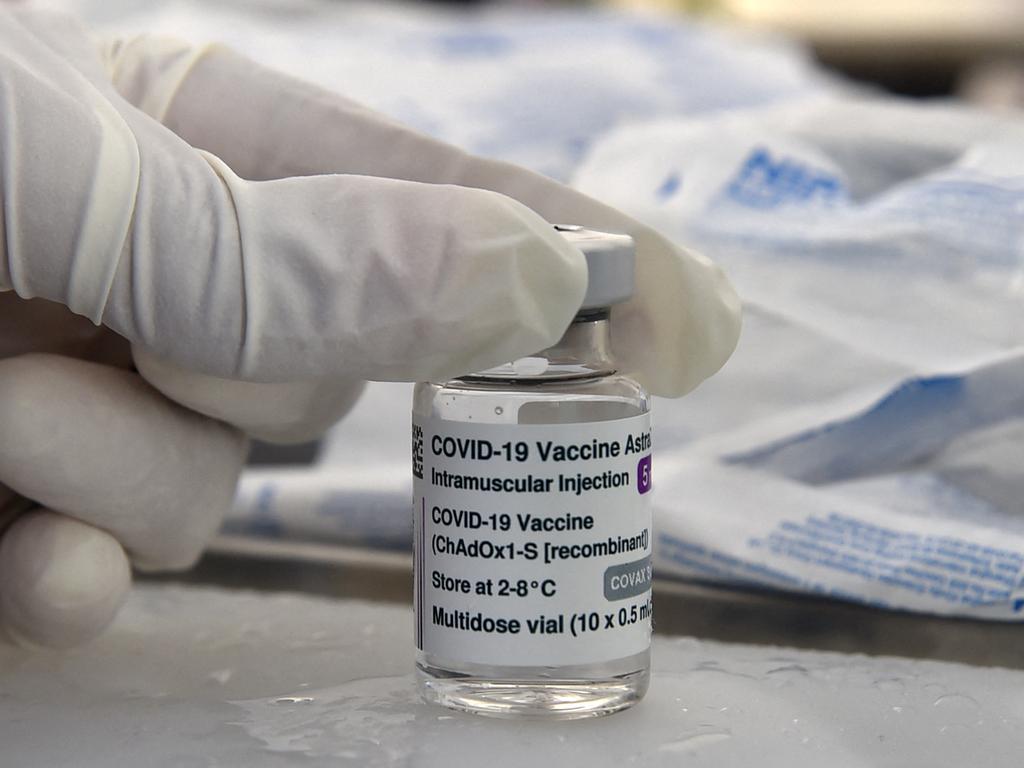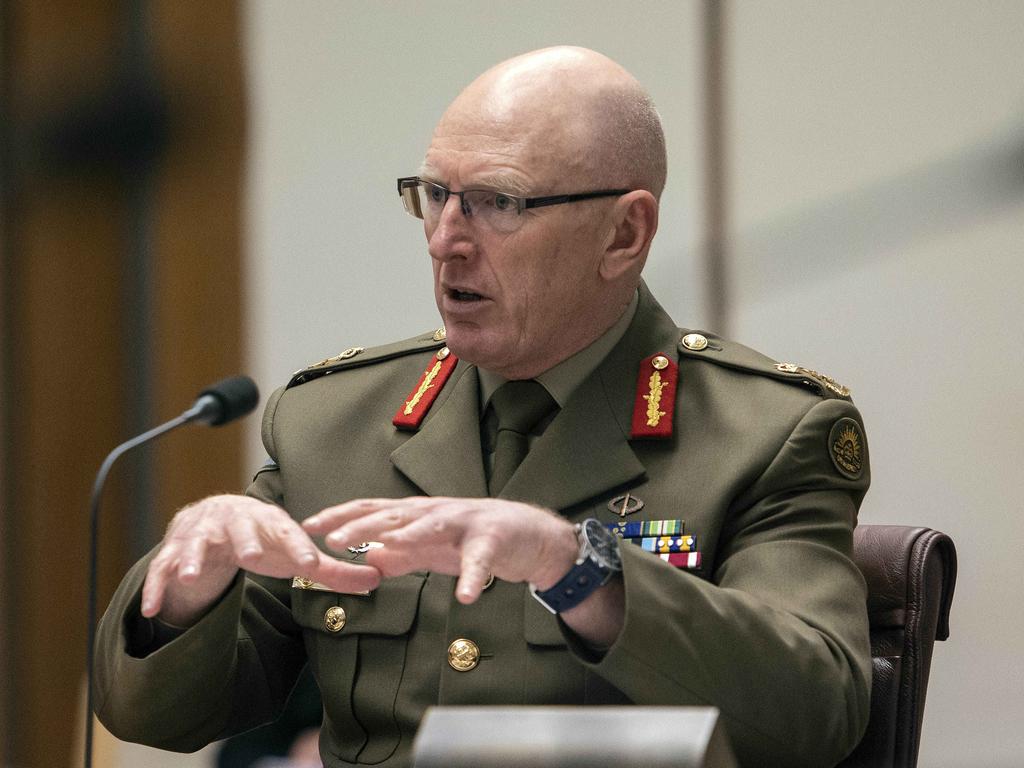Concerns AstraZeneca advice could spark more vaccine rollout delays
Australia’s vaccine rollout was hit with another blow after advice on the AstraZeneca jab changed, raising concerns over exactly what the impact will be.

As Australia’s embattled vaccine rollout reels from another blow following the change in advice for the AstraZeneca jab, questions are being raised about the impacts this could have going forward.
So far more than 6.3 million vaccine doses have been administered across the country, but health experts have continually stressed the rollout was progressing quickly enough.
Now, with the recommendation that the AstraZeneca vaccine should only be given to those aged 60 and above after another person died from a blood clot in her brain, there are fears the rollout could be stalled even further.
People aged 50-59 are now being told to get the Pfizer vaccine instead, of which Australia has significantly less doses.
In its initial plan, the Federal Government was aiming to have the majority of the adult population vaccinated by October 2021.
RELATED: Urgent talks over vaccine shock

RELATED: AstraZeneca advice could change again
However, a combination of supply issues, clashes between Federal and State Governments over the distribution of doses and the changing advice around AstraZeneca has repeatedly pushed back Australia’s vaccine timeline.
Vice President of the Australian Medical Association (AMA), Dr Chris Moy, said it would take some time to “rejig” the rollout plan to accommodate for this new medical advice.
“We’re opening up a new group, 50- to 59-year-olds, for Pfizer and we have to prioritise older Australians because age is the biggest risk factor for death or serious illness from covid,” he told the ABC.
“This change will require a rejig, create some confusion, more demand for one type of vaccine, and so it will take some time for everything to settle down again.”
Dr Moy said there needed to be a focus on assuring those who can still get AstraZeneca that the vaccine is safe.
People who are under 60 who have received their first dose of AstraZeneca are being urged to go back for their second dose, with the risk of developing the rare blood clotting discovered significantly lower for the second dose.
Despite this reassurance, clinics across the country have seen a major rise in cancellations from people booked in for their second AstraZeneca dose.
General practitioner Todd Cameron, who runs multiple medical practices in Melbourne, told the Sydney Morning Herald he had received hundreds of cancellations following the news regarding AstraZeneca.
He expressed fears the latest advice would have a major impact on the rollout.
“This will hold up the vaccine rollout massively,” Dr Cameron said.
“Public confidence in the vaccine has yet again been completely shot.”
Research released by the McKell Institute found that the cost of the vaccine delay will likely exceed $1.4 billion.
Officials expect vaccine rates to drop
Government officials confirmed they are expecting a drop in daily vaccination rates as people make “informed decisions” and alter their appointments, but have attempted to play down the possible long-term impacts of the AstraZeneca news.
“We will see a likely temporary reduction in daily vaccination rates, as people make informed decisions around what they want to do,” Covid-19 Task Force commander Lieutenant General Frewen told reporters on Friday.
“They then change their bookings and they then get access to a Pfizer provision point. But this potential reduction should be short-term, and then we would see a return to the more regular daily vaccination rates.”
He remained confident all Australians would be offered a vaccine dose by the end of the year, saying there were “sufficient Pfizer stocks” to adjust to the expanded demand.
RELATED: Twelve new blood clot cases after vaccine

“What we need from the Australian public is some patience, particularly in the 50-to-59 cohort, across the next couple of weeks as we get the bookings in place and we get those additional points of Pfizer availability in place,” he said.
The government is aiming to rapidly expand access to the Pfizer vaccine over the next two weeks, with about 1.7 million doses expected this month and 2.8 million due to arrive in July.
Officials are also planning on having 40 million doses arrive before the end of the year, along with shipments of the Moderna vaccine.
Call for overhaul of Australia’s vaccine approach
Head of the Doherty Institute’s Vaccine and Immunisation Research Group, Professor Terry Nolan, has suggested Australia should consider completely switching up its approach to the rollout.
Speaking with 3AW, Professor Nolan warned the risk of the virus spreading during winter is much higher and adopting a similar approach to Britain could help mitigate the risk of outbreaks.
He suggested switching the focus to administering as many first doses of the vaccine as possible, with only those in high risk environments being given two doses.
“The British did this (they) went hell-for-leather in getting as many of the first doses into as many of the population as possible,” he said.
“The evidence subsequently proved they were right, that doing that was better than having an ideally protected smaller proportion, rather than less-than-ideal but still not bad protected much bigger proportion of the population.
“That’s not our policy at the moment. I’m suggesting ATAGI look much more closely at that because of the supply constraints with the MRNA vaccines.”
Professor Nolan said the “cold harsh reality” for Australia right now is that there isn’t enough vaccine to make the rollout go any faster.




